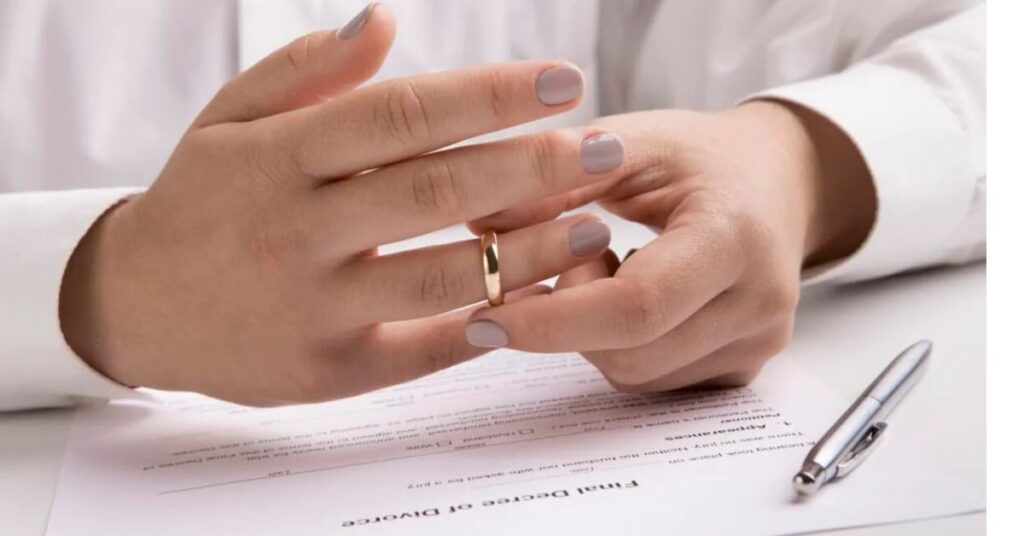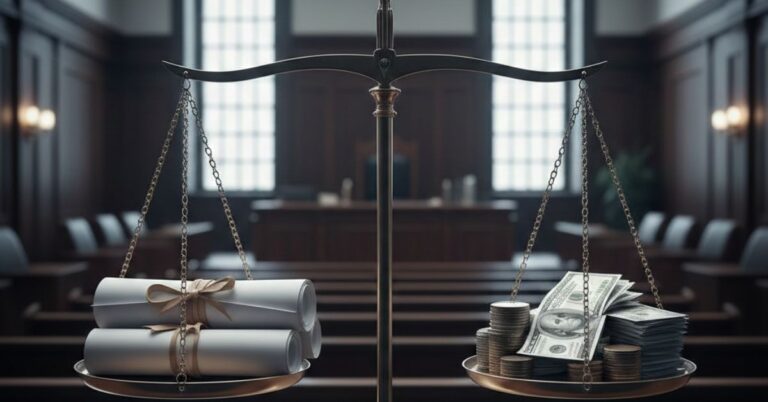I. OVERVIEW:
Order VI Rules 17 of the Code of Civil Procedure, 1908 (the ‘Civil Procedure Code’) forms the cornerstone of the law on the amendment of pleadings. The said rule is reproduced below for your reference:
Amendment of pleadings. The Court may at any stage of the proceedings allow either party to alter or amend his pleadings in such manner and on such terms as may be just, and all such amendments shall be made as may be necessary for the purpose of determining the real questions in controversy between the parties :
Provided that no application for amendment shall be allowed after the trial has commenced, unless the Court comes to the conclusion that in spite of due diligence, the party could not have raised the matter before the commencement of trial
The Hon’ble Supreme Court, in the landmark case of Salem Advocate Bar Association, T.N. v. Union of India1, has noted the history and object of Order VI Rule 17 as follows:
“Order 6 Rule 17 of the Code deals with amendment of pleadings. By Amendment Act 46 of 1999, this provision was deleted. It has again been restored by Amendment Act 22 of 2002 but with an added proviso to prevent application for amendment being allowed after the trial has commenced, unless the court comes to the conclusion that in spite of due diligence, the party could not have raised the matter before the commencement of trial. The proviso, to some extent, curtails absolute discretion to allow amendment at any stage. Now, if an application is filed after commencement of trial, it has to be shown that in spite of due diligence, such amendment could not have been sought earlier. The object is to prevent frivolous applications which are filed to delay the trial.”
The instant article explores the position of Indian law on when pleadings can be amended and the extent to which Courts would permit such amendment, as evolved and expounded by judicial precedents.
II. GENERAL PRINCIPLES ON AMENDMENT OF PLEAINGS:
It is fairly settled law that amendment of pleadings under Order VI Rule 17 is to be allowed if such an amendment is required for proper and effective adjudication of controversy between the parties and to avoid multiplicity of judicial proceedings, subject to certain conditions such as allowing the amendment should not result in injustice to the other side. Further, in normal circumstances, an admission made by the defendant, conferring certain rights on Plaintiff is not allowed to be withdrawn, resulting in prejudice to such right of the Plaintiff, depending on the facts and circumstances of a given case. In certain situations, a time barred claim cannot be allowed to be raised by proposing an amendment to take away the valuable accrued right of a party. However, mere delay in making an amendment application itself is not enough to refuse amendment as the delay can be compensated in terms of money.
The Hon’ble Supreme Court has held that the purpose and object of Order VI Rule 17, is to allow either party to alter or amend his pleadings in such manner and on such terms as may be just.2 The power to allow amendment is wide and can be exercised at any stage of the proceedings in the interests of justice on the basis of guidelines laid down by various High Courts and the Hon’ble Supreme Court. Amendment of Pleadings cannot be claimed as a matter of right and under all circumstances. However, the Courts, while deciding such prayers, should not adopt a hyper-technical approach. A liberal approach should be the general rule, particularly in cases where the other side can be compensated with costs.3
It has also been held by the Hon’ble Supreme Court4 that a party is not allowed by amendment to set up a new case or a new cause of action, particularly when a suit on a new case or cause of action is barred.5 But it is well recognized that where the amendment does not constitute the addition of a new cause of action or raise a different case, but amounts to no more than a different or an additional approach to the same facts, the amendment will be allowed, even after the expiry of the statutory period of limitation.6
The Hon’ble Supreme Court has also held that it is well settled law that delay in filing the application for amendment of the written statement is not a ground for refusal of prayer for amendment. Further, the Court cannot go into the merit of such amendment. The only question at the time of considering amendment of the pleadings would be whether such amendment would be necessary for decision of the real controversy between parties in the suit.7
In the landmark case of Reevajeetu Builders and Developers v. Narayanaswamy and Sons & Ors.8, it has been held that, on an analysis of English and Indian cases, some of the basic principles which ought to be taken into consideration while allowing or rejecting an application for amendment of pleadings are:
- whether the amendment sought is imperative for proper and effective adjudication of the case;
- whether the application for amendment is bona fide or mala fide;
- the amendment should not cause such prejudice to the other side which cannot be compensated in terms of money;
- refusing amendment would in fact lead to injustice or lead to multiple litigation; ➢ whether the proposed amendment constitutionally or fundamentally changes the nature and character of the case;
- as a general rule, the court should decline amendments if a fresh suit on the amended claims would be barred by limitation on the date of the application.
III. AMENDMENT TO A PLAINT VIS-À-VIS A WRITTEN STATEMENT:
The Hon’ble Supreme Court has held that the amendment of a plaint and amendment of a written statement are not exactly governed by the same principle. While some general principles are common to both, but the rules that the plaintiff cannot be allowed to amend his pleadings so as to alter materially or substitute his cause of action or the nature of his claim has necessarily no counterpart in the law relating to the amendment of the written statement, since adding a new ground of defense or substituting or altering a defense does not raise the same problem as adding, altering, or substituting a new cause of action.9 The Court has thus held that inconsistent pleas can be raised by defendants in the written statement, although the same may not be permissible in case of plaint.10
IV. WHEN DOES TRIAL COMMENCE:
The proviso of Order VI Rule 17 states that ”… no application for amendment shall be allowed after the trial has commenced, unless the Court comes to the conclusion that in spite of due diligence, the party could not have raised the matter before the commencement of trial.”
Thus, keeping in mind the apparent embargo on the court to allow an amendment application after commencement of trial, unless it comes to the conclusion that the in spite of due diligence, the party could not have raised the matter before commencement, it is of paramount importance to decipher the meaning of the expressions “trial has commenced” and “commencement of trial” as used in the said proviso and how deep in the life of a civil suit may a trial be seen to have commenced, for the embargo under the proviso to fall into place.11 This has been a source of periodic discussion by the Hon’ble Supreme Court and High Courts, with varying views.
In the first landmark judgment that dealt with this issue, in the case of Baldev Singh & Ors. v. Manohar Singh & Ors.,12 the Hon’ble Supreme Court opined that commencement of trial as used in the proviso to Order VI Rule 17 in the Civil Procedure Code must be understood in the limited sense as meaning the final hearing of the suit, examination of witnesses, filing of documents and addressing of arguments.
The issue was next discussed by the Hon’ble Supreme Court in the case of Vidyabai & Ors. v. Padmalatha & Anr.13 In the said case, in the period between filing of the written statement and the application for amendment of the written statement, issues were framed, the parties filed their respective affidavits by way of evidence and the dates for the cross examination of the witnesses had been fixed. The Hon’ble Supreme Court considered the same and held that filing of an affidavit in lieu of examination-in-chief of the witness would amount to commencement of the trial.
The inquiry on when a trial commences was further pursued by the Hon’ble Supreme Court in the case of Mohinder Kumar Mehra v. Roop Rani Mehra & Ors.14 where it was held that the trial commences after issues are framed and the case is fixed for hearing and the party having the right to begin, is to produce his evidence. Applying the said law to the peculiar facts of the case, it was held that the trial commenced when the date was fixed for leading evidence by the plaintiff.
Thus, as evident from the above paragraphs, the Hon’ble Supreme Court had diverging opinions on when the expression “commencement of trial.” In the author’s opinion, this issue has been largely resolved by the decision of the Hon’ble Calcutta High Court, in its decision in the case of Sree Sree Iswar Radha Behari Jew & Anr. v. Malati P. Soni, when the said question was put up on reference and the Hon’ble Calcutta High Court inter alia analysed the above decisions of the Hon’ble Supreme Court separated the wheat from the chaff and held that the expression “commencement of trial” in the proviso to Order VI Rule 17 of the Civil Procedure Code would imply the date when the court first applies its mind after the affidavit of evidence is filed and when the first witness proves his affidavit of evidence or such witness seeks to prove a document for it to be tendered in evidence or the cross examination of such witness begins, whichever is earlier.
The Hon’ble Calcutta High Court reasoned that there is a distinction between when the trial stage commences in the life of a civil suit and when the trial actually commences within the meaning of the two relevant expressions used in the proviso to Order VI Rule 17 of the Civil Procedure Code. Ordinarily, the trial stage commences in a suit immediately upon issues being determined. However, it is not immediately thereupon that the trial in a suit commences in right earnest and the commencement of the trial is only when any witness takes to the box, whether to prove his affidavit of evidence or to prove any document to be tendered into evidence or to face any cross-examination; for, it is at this stage that the court applies its judicial mind to examine the evidence or to consider whether a particular document is to be received in evidence or to consider the permissibility of the questions put in cross-examination.
Thus, it is only when an affidavit of evidence is sought to be proved by a witness or any document referred to in such affidavit is sought to be tendered into evidence or the relevant witness beginning to face cross-examination, that the trial commences within the meaning of the two relevant expressions in the proviso of Order VI Rule 17.
Conclusion:
The law on the amendment of pleadings has largely been settled in India with respect to the scope and nature of amendments of both plaints and written statements and may be summarized as follows:
- Amendment should be required for proper and effective adjudication of controversy between the parties.
- Courts should, as a general rule, adopt a liberal approach when allowing amendment of pleadings.
- The Plaintiff cannot be allowed to amend his pleadings so as to alter materially or substitute his cause of action or the nature of his claim.
- The Defendant is permitted to add new grounds of defense or substitute or alter a defense or raise inconsistent pleas in the written statement, which is not permissible in case of the plaint. ➢ The trial commences under the proviso of Order VI Rule 17 when an affidavit of evidence is sought to be proved by a witness or any document referred to in such affidavit is sought to be tendered into evidence or the relevant witness beginning to face cross-examination.
– Agastya Sreenivasan, Paralegal, Solomon & Co.
About Solomon & Co.
Solomon & Co. (Advocates & Solicitors) was founded in 1909 and is amongst India’s oldest law-firms. The Firm is a full-service firm that provides legal service to Indian and international companies and high net-worth individuals on all aspects of Indian law.
“Disclaimer”
The information contained in this article is intended solely to provide general guidance on matters of interest for the personal use of the reader, who accepts full responsibility for its use. The application and impact of laws can vary widely based on the specific facts involved. As such, it should not be used as a substitute for consultation with a competent adviser. Before making any decision or taking any action, the reader should always consult a professional adviser relating to the relevant article posting.





